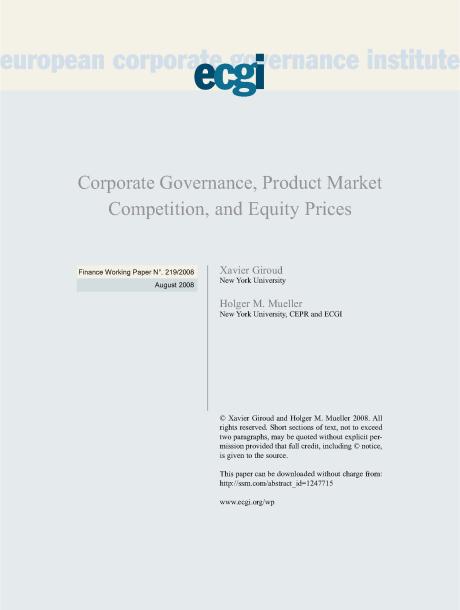
Corporate Governance, Product Market Competition, and Equity Prices
Abstract
This paper examines the hypothesis that firms in competitive industries should benefit relatively less from good governance, while firms in non-competitive industries - where lack of competitive pressure fails to enforce discipline on managers - should benefit relatively more. Whether we look at the effects of governance on long-horizon stock returns, firm value, or operating performance, we consistently find the same pattern: The effect is monotonic in the degree of competition, it is small and insignificant in competitive industries, and it is large and significant in non-competitive industries. By implication, the effect of governance (in non-competitive industries) reported in this paper is stronger than what has been previously reported in Gompers, Ishii, and Metrick (2003, GIM) and subsequent work, who document the average effect across all industries. For instance, GIM's hedge portfolio - provided it only includes firms in non-competitive industries - earns a monthly alpha of 1.47%, which is twice as large as the alpha reported in GIM. The alpha remains large and significant even if the sample period is extended until 2006. We also revisit the argument that investors in the 1990s anticipated the effect of governance, implying that the alpha earned by GIM's hedge portfolio is likely due to an omitted risk factor. We find that while investors were indeed not surprised on average, they underestimated the effect of governance in non-competitive industries, the very industries in which governance has a significant effect in the first place.








